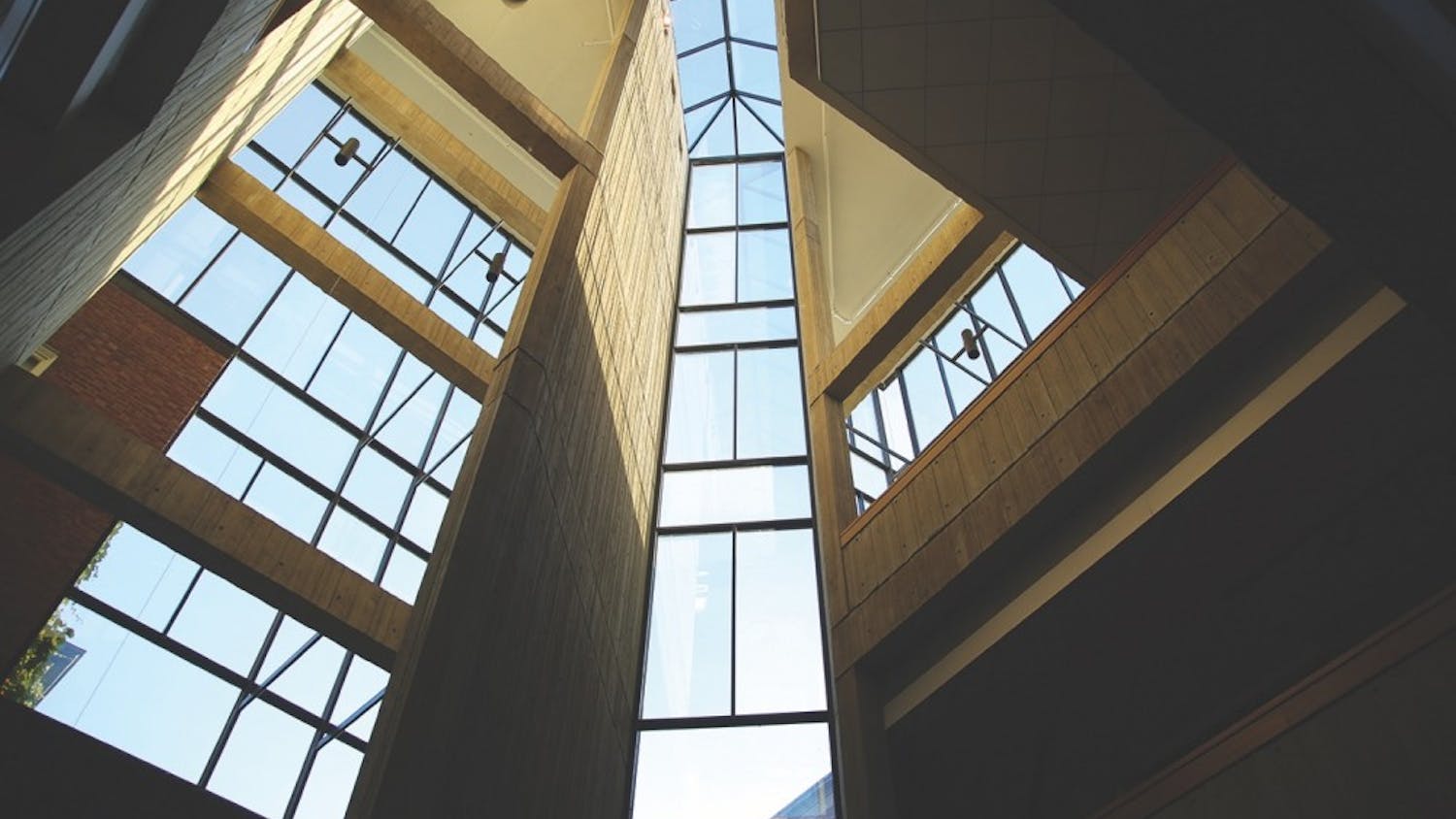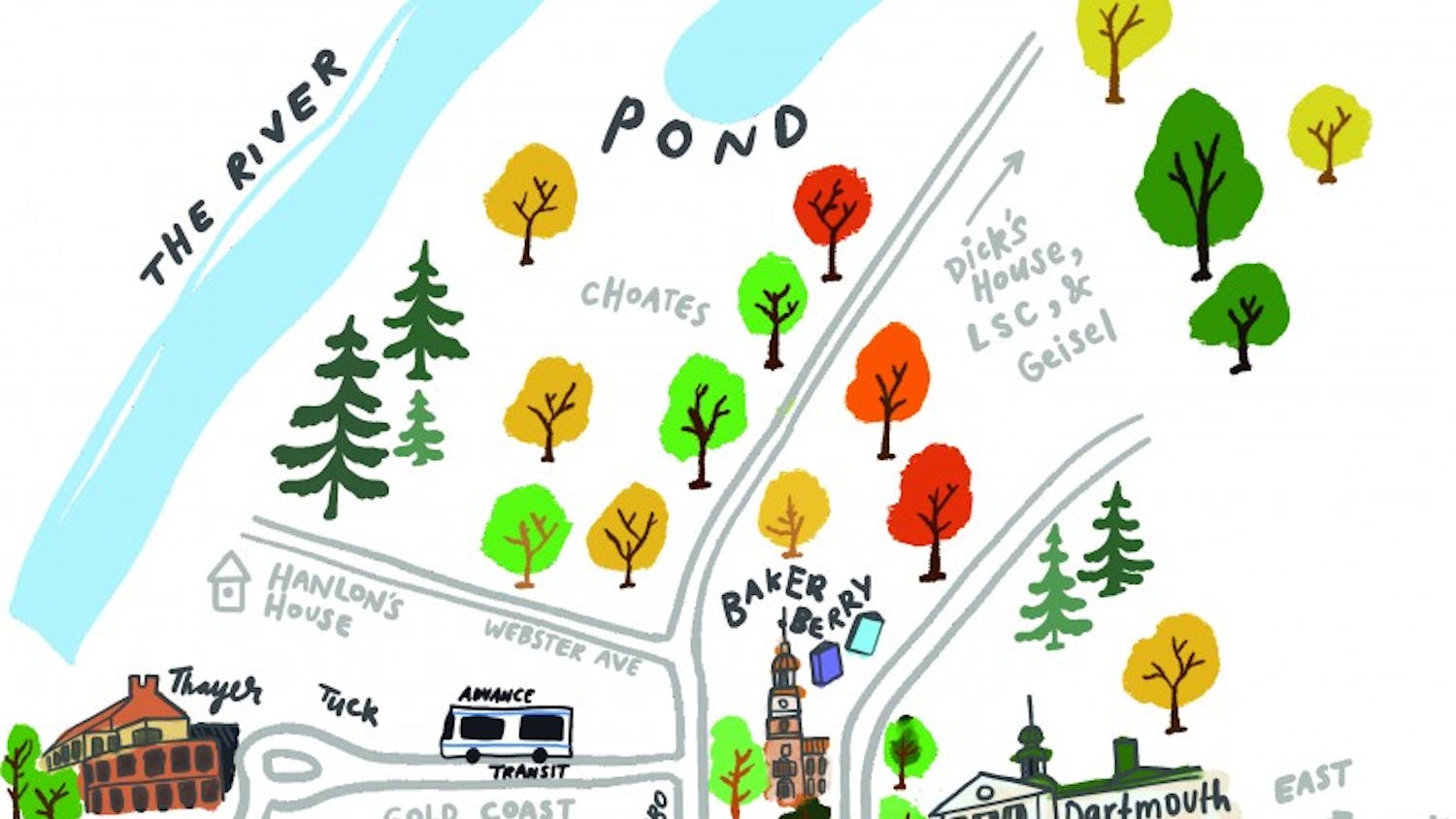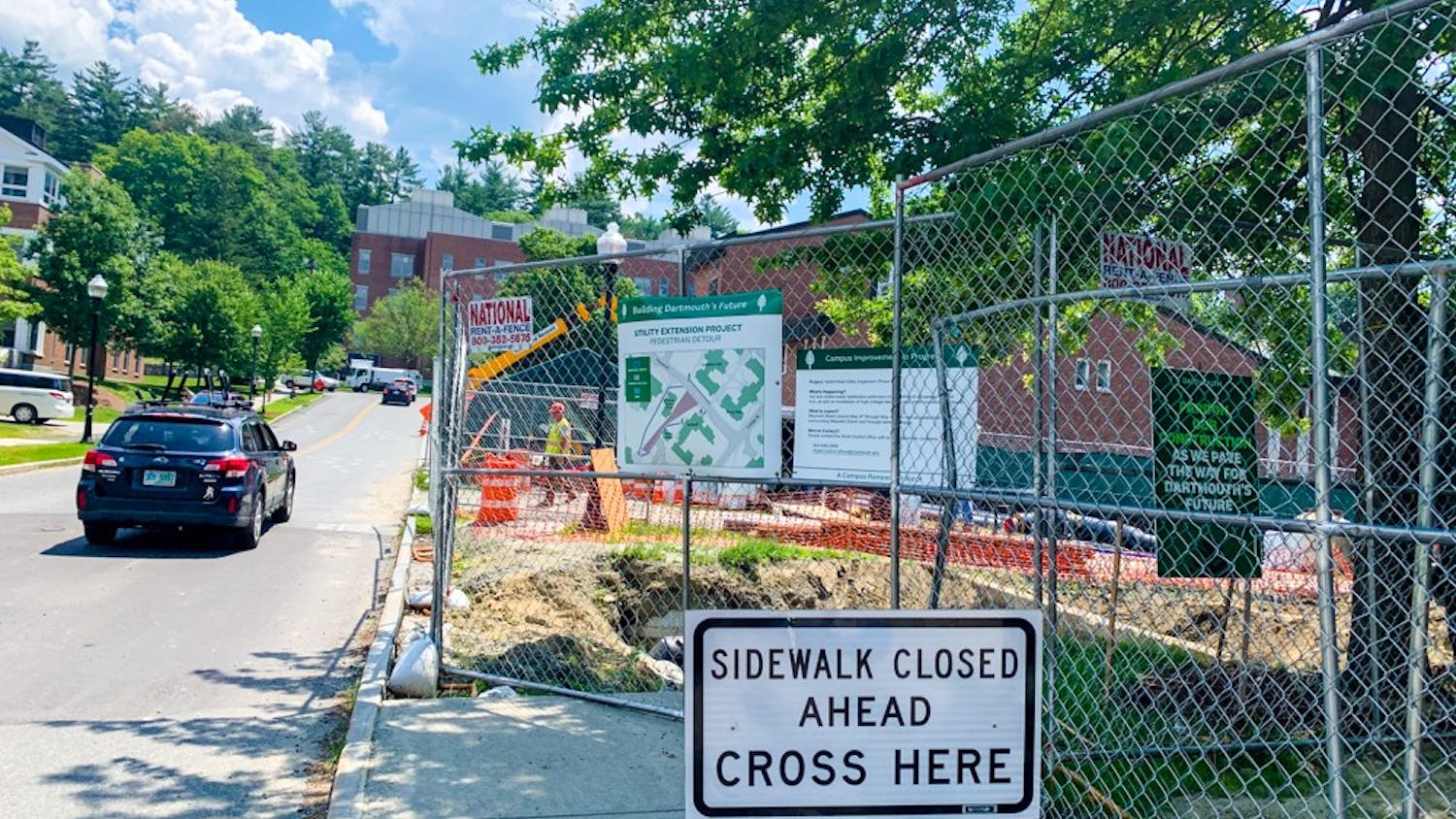When students returned to Hanover this fall, many were surprised to run into a pop-up traffic light, which did not exist before, at the intersection of Webster Avenue and N. Main Street. The light had been installed as a temporary solution to guide cars around the construction sites on campus, but its presence confused students and obstructed traffic.
The construction across campus is due to the North-West Utility Expansion Project, involving the installation of campus-wide hot and chilled water networks. Construction workers are building underground pipes so that Sudikoff Hall and the McLaughlin Cluster can supply hot and cold water, respectively, across campus to the West End district, including the expansion of the Thayer School of Engineering.
“The big drive [behind this project] was energy efficiency,” said Patrick O’Hern who, as the College’s Capital Renewal Program manager, determines the College’s infrastructure maintenance needs. “The age of the steam system [makes it require] more and more maintenance, so it would be better to get in the ground and not have to rely on the aging steam infrastructure.”
When the North-West Utility Expansion Project is completed, there will be no need to install new steam equipment in the new Thayer buildings, and the distribution of hot water will be more efficient in retaining the greatest amount of heat transmitted to buildings, according to O’Hern.
Despite the future benefits it offers, the construction has caused pedestrian detours and traffic surrounding Maynard Street, North Main Street and Tuck Mall. Students who need to take the Advanced Transit bus at Webster Ave. and Carson Hall must go to Steele Hall or Wentworth Hall, according to signs posted near the temporary-defunct bus stop. Soon, the entrance of the McLaughlin Cluster will be blocked and students will need to find other ways to enter and leave Berry and Byrne II, according to O’Hern.
Students have taken notice of the construction and its effects. Tina Li ’20, who lives near the construction site, said that it has caused her a daily inconvenience, while Yifan He ’20 said that the construction confused her when she returned to campus because she had not known it was about to occur.
The installation of pipes will be complete by the end of fall term. When students return to campus in the winter, the temporary fences will be removed and the currently blocked streets will be unobstructed, according to O’Hern. The water distribution itself is expected to start in March 2020.
In addition to the North-West Utility Expansion Project, the Turner Construction Co. is continuing its work on the West End district. Construction had been temporarily halted in July when a 70-foot hole, meant to serve as a foundation of a parking lot and new building, was placed 10 feet south of the intended location. Dartmouth obtained approval over the summer from the Hanover Planning Board to keep and build upon the misplaced hole. The continued construction adds traffic when entering Hanover from W. Wheelock Drive and creates noise pollution for students, including those living in the River Cluster.
The construction has led to disruption around the town, according to Hanover director of planning, zoning and codes Robert Houseman. However, Houseman believes that the long term benefits are worth the current inconveniences and cited the West End expansion project as a good example of the town-college partnership between Dartmouth and Hanover.
“When the project is complete, it is a win-win set up improvement,” Houseman said. “We will gain safety improvements … [and] partner with Dartmouth to build the sidewalk on West St. Dartmouth designs and funds.”



